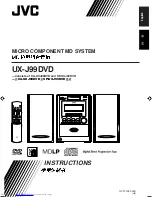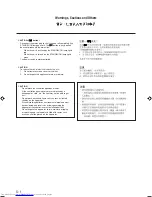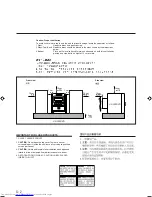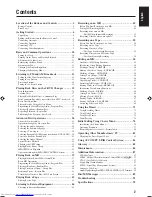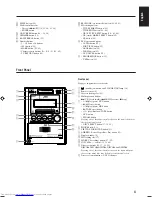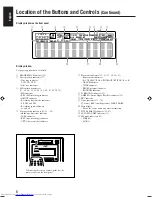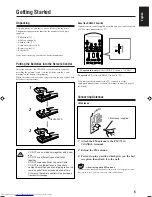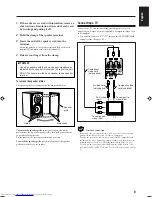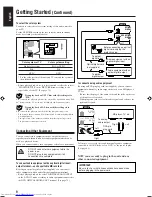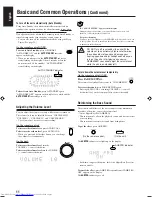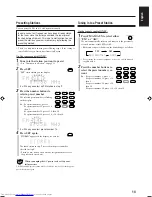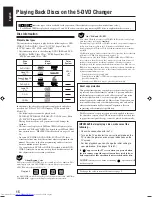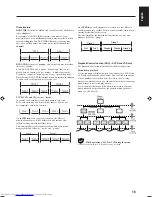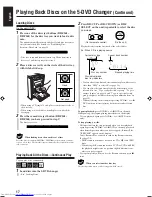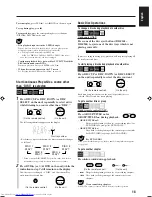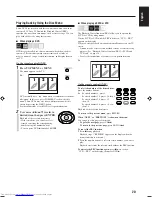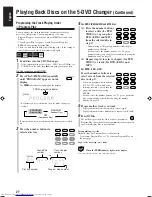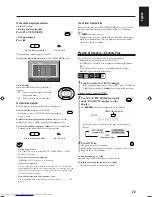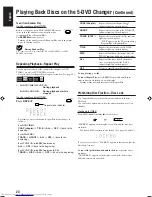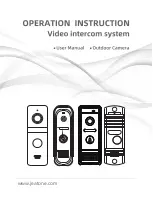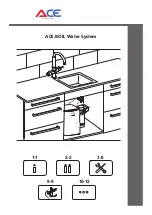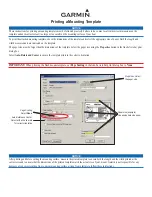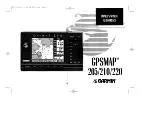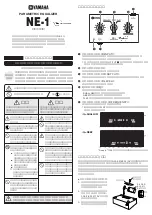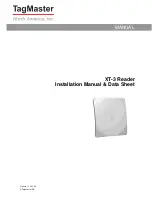
8
English
Connecting a TV
Connect your TV and this unit using the composite video cord
(supplied), an S-video cord (not supplied) or component video cord
(not supplied).
• You can also connect a JVC’s TV through the AV COMPU LINK
control system. (See page 84.)
On video connection
• By using S-video or component video cord, you can get a better picture
quality—in the order: composite < S-video < component.
• To enjoy the progressive video picture, connect the TV compatible with
the progressive video input using component video cord, then change the
scanning mode correctly (see “Changing the Scanning Mode” on page
12). You can enjoy the progressive scanning mode only when the color
system of your TV is NTSC (see also “To select the color system” on page
9).
1
If the cords are covered with insulation, remove a
short section of insulation at the end of each cord
by twisting and pulling it off.
2
Hold the clamp of the speaker terminal.
3
Insert the end of the speaker cord into the
terminal.
Match the polarity of the speaker terminals: Red cord to red
terminal
ª
and black cord to black terminal
·
.
4
Release your finger from the clamp.
IMPORTANT:
• Use only speakers with the same speaker impedance as
indicated by the speaker terminals on the rear of the unit.
• DO NOT connect more than one speaker to one speaker
terminal.
To remove the speaker grilles
The speaker grilles are removable as the illustration below.
To remove the speaker grille,
insert your fingers around the
projection at the top of the speaker grille, then pull gently towards
you while holding the side.
Do the same for the rest of projections one at a time.
To attach the speaker grille,
put the projections of the speaker
grille into the holes of the speaker.
Projections
Holes
Speaker
grille
TV
Composite video
cord (supplied)
S-video cord
(not supplied)
To composite
video input
To S-video
input
Component
video cord
(not supplied)
To component
video input
VIDEO
OUT
S-VIDEO VIDEO
COMPONENT
P
R
P
B
Y
EN06-09_UX-J99DVD[UB]5.p65
03.12.12, 11:02 PM
8

